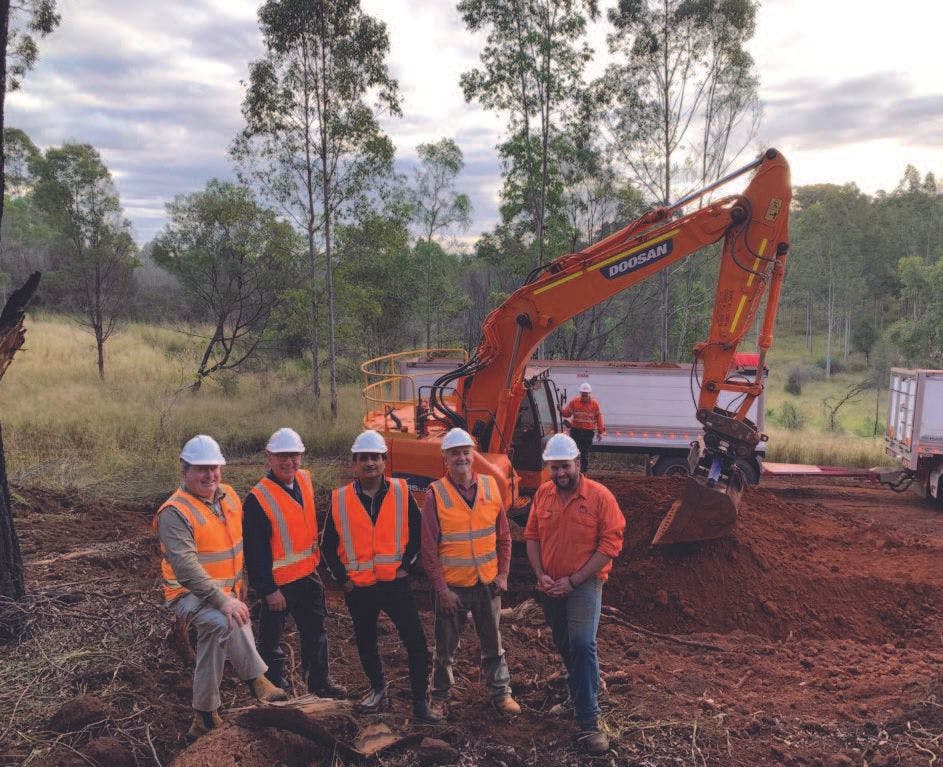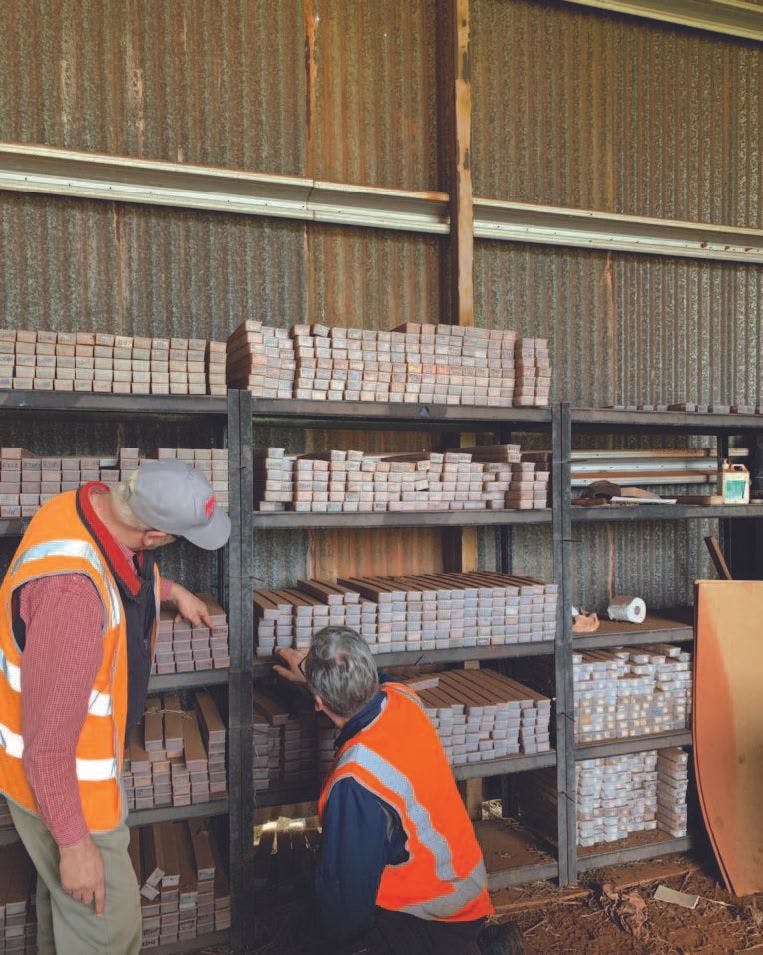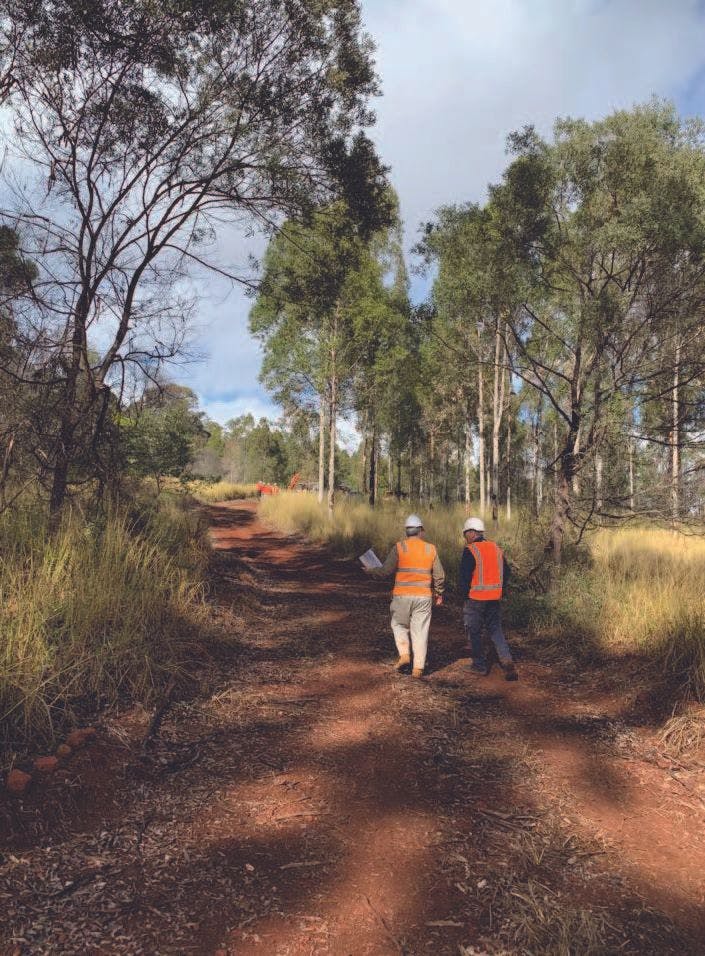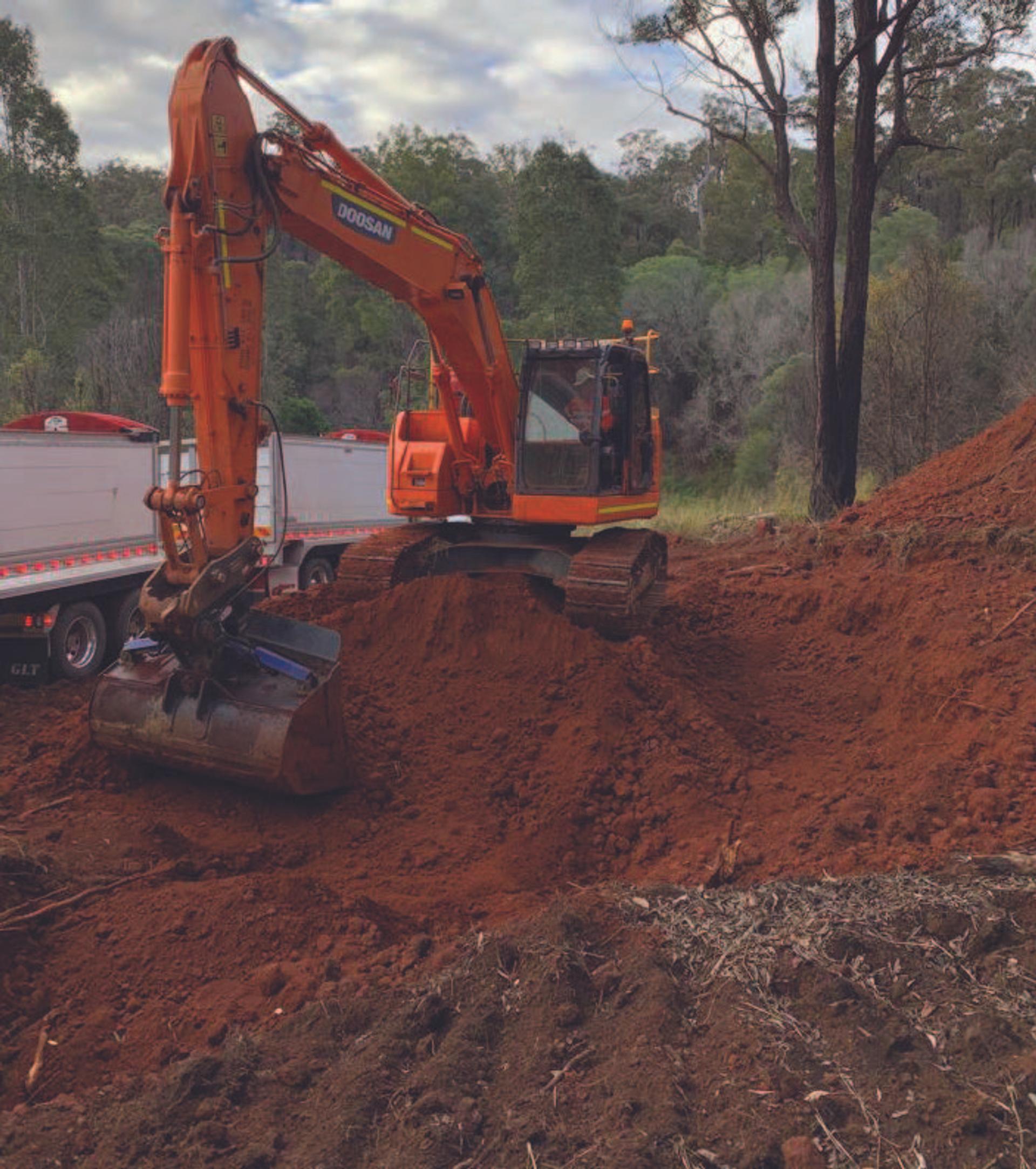Abstract
Rawmin, a family-owned mining company, embarked on its entry into Australia with the aim of transforming the Indian company into a multinational mining and export conglomerate operating across multiple minerals. The goal was to leverage well-planned investments in cost-effective, long-lasting mining and production assets both within India and globally.
This strategic direction sought to lessen the company's reliance on mineral ore exports from India and instead transition towards comprehensive global trading involving various commodities and energy resources. This case study delves into the details of Rawmin's Australia focused strategy.

Introduction
Rawmin Mining and Industries Pvt. Ltd. (Rawmin), located in Mumbai, India, operates as a privately held family enterprise. The company is focused on mining, beneficiation, and supply of metallurgical grade bauxite, cement grade bauxite, refractory grade bauxite and other value added products derived from minerals.Its management consists of third-generation entrepreneurs, qualified geologists and mining engineers who bring a wealth of industry experience, by virtue of the family being engaged in the mining sector for over 70 years. They play a pivotal role in keeping international standards of quality, and environmental management throughout the different phases of mining, processing, logistics, and supply. One of Rawmin's distinct advantages lies in its status as a privately-owned entity, which empowers it to make swift business decisions and seize opportunities promptly. The parent company of Rawmin, Saurashtra Minerals Pvt. Ltd., established in 1952, holds a venerable position as one of India's oldest, most distinguished, and foremost mining companies.
Apart from its traditional focus on bauxite mining and export, Rawmin has embarked on a new business strategy aimed at establishing itself as a prominent integrated industrial minerals producer and distributor. This strategic shift involves Rawmin's aspiration to evolve into a diversified manager of natural resources supply chains including a variety of minerals and value-added mineral-based products.
Under this revised plan, Rawmin is actively engaged in the development of supply chains designed to ensure the seamless and sustained provision of essential minerals and their valueadded derivatives. The company's scope now extends to involve the entire process, including production, sourcing, processing, transportation, storage, financing, and distribution of industrial minerals required by both domestic and international industries. Rawmin’s customers around the world are active in a wide range of industries, such as mining, automotive, oil, power generation, alumina / aluminium, and steel production.
Its overarching strategy involves cultivating sourcing capabilities from multiple countries, including India, Australia, UAE, Oman, Guyana and USA. These sourced minerals and products will then be channelled to high-demand and rapidly growing markets, including but not limited to India, China, the Middle East, and select European nations.
Australia Strategy
In 2015, Rawmin made its entry into the Australian market through an initial offtake agreement (in the form of a marketing partnership) with ABx Group (formerly Australian Bauxite Ltd. ASX: ABX). This collaboration revolved around ABx Group's inaugural mining lease area in Tasmania, the mining operations were in their initial stages. Rawmin's association with ABx Group Ltd. was in the capacity of an offtake customer. The company decided to diversify and explore avenues for sourcing minerals, as part of its forward-looking strategy. Australia emerged as an ideal match for their requisites. Their perception was underpinned by Australia's reputation as a mining-friendly nation, its advanced mining technologies, and its status as an extremely low-risk democratic country.

Rawmin is currently developing a joint venture bauxite mining project, situated in Queensland, in close partnership with ABx Group Ltd (ASX: ABX), through Alumin Pty Ltd (Alumin). Alumin is an Australian special purpose vehicle company, having extensive experience in funding long term sustainable investments in projects involving mining and bulk-shipping of metallurgical grade bauxite to end users around the world. Under the Agreement, Alumin will contribute up to A$18 million of the development costs. For each contribution of A $3.65million, Alumin will earn 10% equity in the ABx Group’s Sunrise Bauxite Project, up to a maximum of 49.9%. ABx anticipates the JV agreement to fund all operations associated with mine and port development.
The primary focus of this joint venture is extraction and processing of metallurgical grade bauxite ore, sourced from Sunrise Bauxite Project, at Binjour plateau and port operations at Bundaberg in Queensland. Binjour is located 115km inland of Bundaberg. The objective is to facilitate the export of processed bauxite through the Port of Bundaberg, located within the Wide Bay Burnett region of Queensland. Also, the joint venture includes the strategic development of port facilities, including the creation of a dedicated Bauxite loading terminal situated at the Port of Bundaberg.
It is projected that the mine at Binjour will initially export 500,000 tonnes per year of metallurgical grade bauxite in its first year of production, then scaling up to full operational capacity of 2 million tonnes, with export expected to customers in India and China. The mine will operate for a minimum of 20 years and will employ local workers in the area. Additionally, up to 50 direct staff will be employed to operate the mine site and port facilities, which is anticipated to have a flow-on effect creating other indirect employment opportunities in the area.
“It was crucial for us to conduct market research to understand the grade of Bauxite being mined by ABx Group and then to identify potential customers. Our joint venture with ABx Group was to help us navigate regulatory and cultural barriers. We were aware that it was vital to build relationships with key stakeholders, including government officials, local communities, and industry associations.” – Bhargav G Thanki, Director, Rawmin Mining, and Industries Pvt. Ltd.
“We were also aware that investing in technology and infrastructure would improve efficiency and competitiveness. Adopting sustainable mining practices and learning these from an Australian company would improve the social and environmental impacts of mining operations and enhance the project's long-term viability.”
“We found that a lot of things and activities that we considered time consuming and frustrating in India were quite smooth in Australia. We saw there was a lot of support and encouragement by the government and our local partners.”
Seeing The Future
Rawmin predicts a sustained rise in the demand for imported minerals in India. This projection stems from the shifting regulatory landscape. An increasing number of Indian industries, heavily reliant on minerals, are transitioning toward the consumption of imported mineral resources. Rawmin cites the following factors for its entry into the Australia market, and elaborate reasons for industries shifting to a model reliant on 100 percent imported minerals –
- Reforms and regulatory challenges: The absence of comprehensive reforms and the prevalence of stringent rules and regulations with exceptionally high royalty rates on minerals have created a challenging environment for the Indian domestic mineral industries
- Environmental and legal factors: Stringent environmental laws and heightened activism focused on pollution-related issues have led to frequent legal interventions. Local concerns near mining sites often result in disruptions and temporary mine closures
- Labour shortage: The scarcity of skilled labourers for mining operations further compounds the challenges faced by domestic mineral industries
- Depleted reserves and stalled auctions: The depletion of reserves in existing mining leases, coupled with new policies in the mineral auction process by the Government of India, has hindered the initiation of new greenfield mining projects over the past 8 years
- Stringent regulatory regime: An intricate web of strict regulations and compliance requirements, alongside high royalty, and taxes, strains the relationship between the mining sector and governmental bodies, as well as the judiciary. This discord is unlikely to be resolved swiftly
- Exploration hurdles: Private sector exploration and prospecting in untapped regions have stagnated. The lack of incentives for fresh exploration, due to allocation limitations to auctions, has contributed to this situation
- Simplified import processes: Importing minerals sidesteps the Indian mining and environmental laws, offering a straightforward procedure involving Customs and GST departments. This guarantees a consistent supply.

Planning Ahead
The mining industry in Australia boasts abundant natural resources, advanced infrastructure capabilities, modern ports, a skilled workforce crucial for its operations and a balanced approach to environmental regulations. India's swiftly expanding economy generates substantial demand for raw materials, with Australia emerging as a key supplier.
Collaboration between Australia and India holds the potential for mutual growth within the mining sector. It could facilitate technology transfer; help capitalise on Australia's advanced mining practices and align with India's burgeoning technology sector through joint research and development efforts.
The Australia-India Economic Cooperation and Trade Agreement (AI-ECTA) has the potential to provide significant benefits to the mining sector and companies operating within it. By reducing or eliminating tariffs on key minerals and resources, the AI-ECTA can improve market access, provide greater regulatory certainty for Australian and Indian companies reducing the risk of disruption to operations. For companies like Rawmin, the AI-ECTA can inform their strategy by helping them make educated decisions on investment, expansion, and diversification.
The Australian mining industry is known for its well-developed regulatory framework, advanced technologies, and vast mineral reserves. However, successfully navigating this sector requires a comprehensive understanding of the following key factors –
- Australian mining operations are subject to stringent regulations and environmental standards. Indian companies must thoroughly acquaint themselves with these laws, covering areas such as environmental protection, land access, safety, and indigenous rights. Adhering to theseregulations
- Conducting thorough due diligence and market research is essential to identify potential risks, opportunities, and challenges in the Australian mining sector. This includes understanding the local geology, market demand, competitors, and pricing dynamics
- Australia places a strong emphasis on environmental protection and community engagement. Indian mining companies must demonstrate a commitment to sustainable practices, environmental rehabilitation, and engaging with local communities to build positive relationships
- The Australian mining industry is known for its technological advancements and innovative practices. Indian companies must ensure they possess the required technical expertise and equipment to operate efficiently and sustainably in Australia
- Companies must have a clear financial plan, including funding for exploration, infrastructure, equipment, and ongoing operational costs
- Companies should have robust risk management strategies in place to mitigate potential challenges
- Collaborating with local stakeholders, including indigenous communities, landowners, and industry associations, can enhance the likelihood of success
- Building strong partnerships and alliances fosters a positive reputation and facilitates smoother project implementation
- Acquiring a skilled local workforce or providing training opportunities for the existing workforce is essential for operational efficiency and adherence to local labour regulations
- Consideration of transportation, logistics, and proximity to ports is crucial for efficient mineral export
- Ensuring the long-term sustainability of mining operations involves careful planning for mine maintenance/closure and land rehabilitation. Adhering to reclamation requirements is vital for minimising environmental impact.
Indian mining companies looking to enter the Australian mining sector must undertake thorough research, adapt to local regulations, prioritise sustainability and stakeholder engagement, and leverage technological advancements. By addressing these factors comprehensively and carefully, companies can position themselves for success in Australia's competitive mining industry.
Important considerations for Indian mining companies in Australia –
- Regulatory compliance and legal framework
- Due diligence and market research
- Environmental and social responsibility
- Technical expertise
- Investment and funding
- Risk management
- Partnerships and alliances
- Local workforce and skills
- Technology transfer
- Stakeholder communication
- Infrastructure and logistics
- Long-term sustainability

